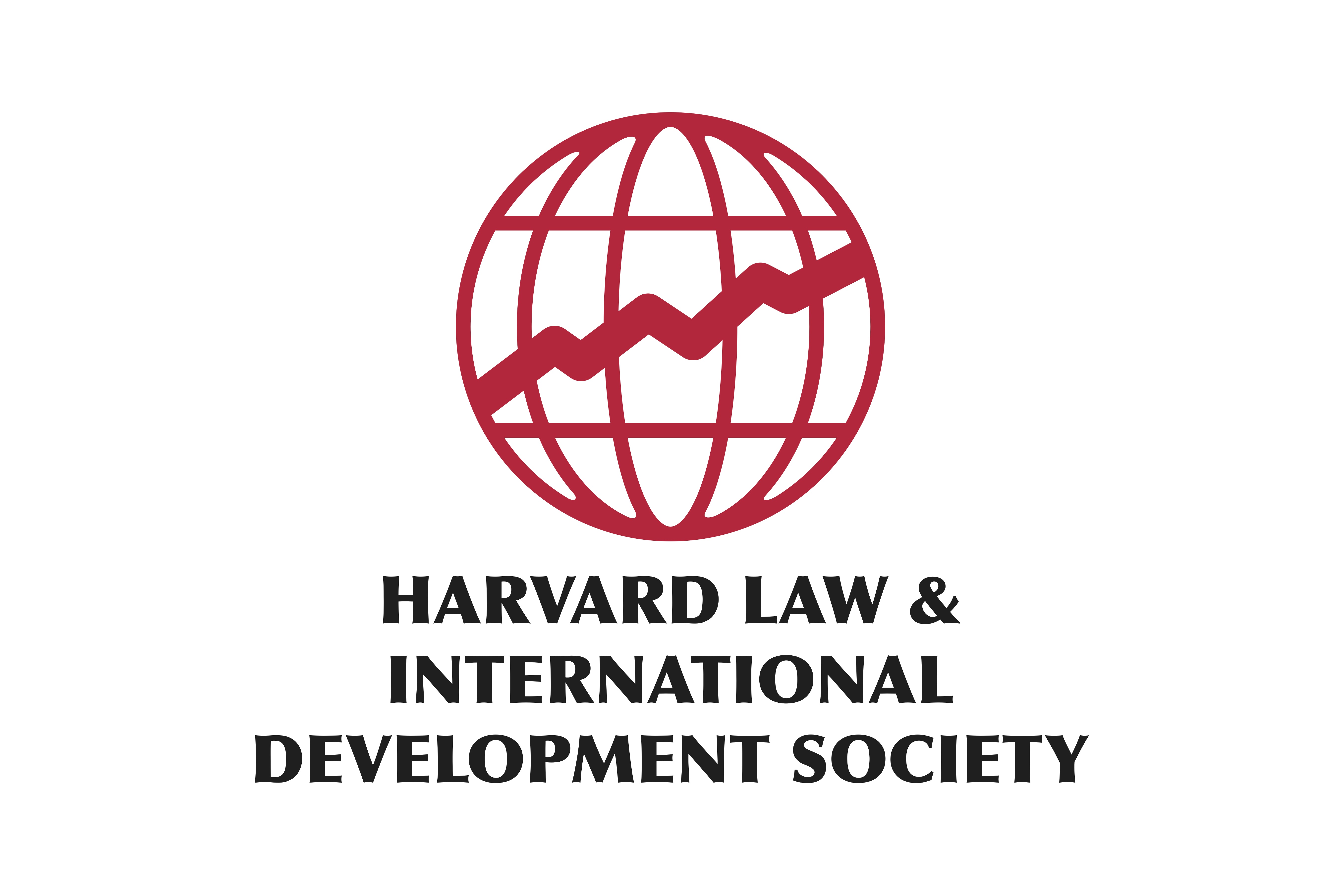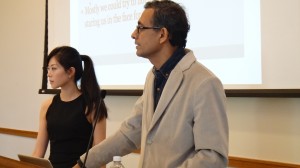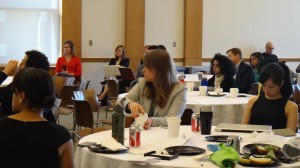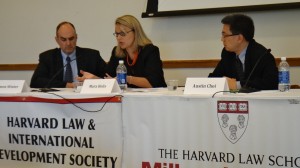October 25, 2013 – Colette van der Ven
On October 18, 2013, LIDS held its annual symposium, this year focusing on the linkages and tensions between trade, development, and entrepreneurship. With sponsorship from the law firms of Allen & Overy, Freshfields Bruckhaus Deringer, Sidley Austin, and Skadden, as well as the Harvard Milbank Tweed Fund and the Harvard International Legal Studies Program, the event was a great success and drew over 100 attendees!
The day-long event was kicked off by Abhijit Banerjee, who provided a powerful keynote address challenging popular understandings of entrepreneurship. Professor Banerjee’s address was followed by two panels: the first focused on barriers to scaling-up entrepreneurship, and the second addressed how to better connect micro-level problems to macro-level trade policy.
Professor Banerjee spoke about the challenges of entrepreneurship amongst the poor and whether entrepreneurship amongst the poor really creates a pathway for growth. He highlighted the importance of differentiating between survival-driven entrepreneurship and growth-driven entrepreneurship and drew attention to the fact that when the poor receive micro-credit loans, they often don’t use it to expand the business but, just like the middle class, buy comfort items instead, like TVs or motorcycles.
The first panel, moderated by Simon Winter, Senior Vice President at Technoserve, focused on capacity and linkage constraints to entrepreneurship, as well as legal and policy barriers. Mara Bolis, Senior Advisor at Oxfam, highlighted the psychological barriers entrepreneurial women face in developing. Austin Choi, General counsel of Kiva, illustrated the need for legal entrepreneurship by explaining how Kiva, an online lending platform, has been pushing to change the Securities Exchange Act to legalize crowdfunding. Simon Winter specifically focused on the importance of removing structural barriers to create systematic change.
The second panel, moderated by Katrin Kuhlmann, President and founder of the New Markets Lab, focused on linking micro-level growth to macro-level policy. Katrin laid the foundation by expanding the notion of “trade” to encompass not just the cross-border passage of goods, but also multiple levels of transactions along the value chain, such as land rights, taxation issues, taxes, etc. She highlighted the importance of tailoring macro-level policies to specific economic opportunities on the ground in order to unlock economic opportunities and entrepreneurship and make regulation more effective. Katrin then illustrated an application of this methodology by describing TransFarm Africa’s success story in revitalizing Tanzania’s seed potato market.
Mark Wu, Assistant Professor at Harvard Law School, highlighted the importance of household savings to move out of poverty. One way to do this is through creating manufacturing jobs. Professor Wu went beyond analyzing the demand side of labor market failures—the creation of jobs—and stressed the importance of labor supply, focusing on fertility rates. He further addressed the inefficiency of domestic markets and motivated students to stay involved, expressing that a lot of work remains to be done to better link entrepreneurs to those interested in buying and selling, both domestically and globally.
Joost Pauwelyn, Professor of International Law and Co-Director of the Centre for Trade and Economic Integration at the Graduate Institute in Geneva, focused mainly on the mismatch in supply and demand with regard to providing legal expertise. A handful of expensive, mainly US, law firms dominate the field, and there is little transfer of knowledge to other players, especially firms in developing countries. To bridge this gap, Professor Pauwelyn has created TradeLab, an online platform that aims to bridge the gap in the legal expertise market by enabling anyone to post trade-related questions, which are answered, in Wikipedia style, by anyone, both trade experts and non-experts, who have the answer.
The message students took away from the symposium was that it is possible to be a lawyer and innovative; to be a lawyer and think outside the box; to be a lawyer and to be part of the solution, not the problem, to major structural impediments in entrepreneurship, development, and trade!




